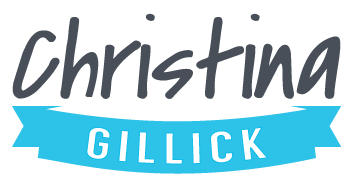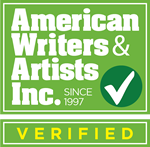 I’m dedicated to helping you live the writer’s life, make more money, and find more clients. Becoming an expert makes all those things easier.
I’m dedicated to helping you live the writer’s life, make more money, and find more clients. Becoming an expert makes all those things easier.
You might be wondering, “How can I become an expert if I’m just getting started?”
Well, just over a year ago, I was barely known in this industry.
I had been copywriting for several years but was new to AWAI. As far as most people were concerned, I was a complete beginner.
But over the past several months, I applied the techniques I’ll share today to raise myself up to expert status. As a result, I got more paying jobs because potential clients who saw my articles and heard me speak started contacting me for work and referring me to others.
Now, let’s start getting your name out there.
Let’s start with a common myth about the word “expert.”
A lot of people think you can’t claim you’re an expert unless you’re the best in your niche or industry. This simply isn’t the case.
Caleb Wojcik, from ExpertEnough.com, tackled this topic recently, and what he said really resonated with me:
If you had to be the best to be an expert, there would only be one expert at:
- Basketball (Jordan? Bird? Magic?)
- Piano (Mozart? Beethoven? Chopin?)
- Running a Tech Company (Gates? Jobs? Dell?)
- Painting (Monet? Raphael? da Vinci?)
Hopefully, that’s enough to start breaking down some of your barriers to calling yourself an expert, but it gets better …
Wojcik goes on to dare you to pick the best out of those categories and say that the others aren’t experts.
Now, I’d like to challenge you to do the same in our industry.
Can you pick the best writer out of Steve Roller, Cindy Cyr, Mindy Tyson McHorse, Sean McCool, or John Wood?
I bet you can’t because each one is an expert in their niche and a great writer with their own style that works for them. Their expert status gives each of them the ability to live their own version of the writer’s life.
If you’re willing to put in some effort, you can join them.
Here are two things I did this past year that really brought me up to expert level in the eyes of my clients and my peers. You can do these things, too:
1. Write Articles
There is a blog, website, or newsletter for every topic imaginable. You could have the most obscure niche in the world and there will still be a publication interested in publishing your articles.
Start by doing a Google search of blogs in your niche. Spend some time evaluating the content on their sites and coming up with unique ideas that provide value to their audience.
As a side note: it will be easier to get an article published on a blog that specifically requests content from new writers or guest blog posts.
But it’s also a good idea to contact some blogs owners who don’t advertise that they’re looking for new articles.
Make a goal to contact several blogs each week. I prefer to send them a short email asking if they’re looking for guest bloggers, and if so, I suggest a few topic ideas. That should result in getting a few articles published each month.
This past year, my strategy was mostly centered on guest blogging and writing articles. After having just a handful of articles published, my work started to pay off.
Now, when I apply for jobs, they often recognize my name from the articles I write.
2. Give a Speech
If you’re like me, just reading that tip made your heart beat a little faster.
That’s okay. As much as I hate to admit it, I’m terrified of speaking in public.
But when I got the opportunity to give a speech at a local business group several months ago, I jumped on it.
I wasn’t sure what I would say (and I was terrified). But I needed to grow my business, so I did it anyway.
Luckily, I had created a lead-generating video series for my website. It was about getting clients to know, like, trust, and buy from you. I used my slideshow from the video series to create my speech.
During the speech, I felt pretty ill, but I actually received many compliments. And because I stood up in front of a group and gave a presentation, I was seen as an expert. I shared knowledge that could help them and networked with them afterward. As a result, I got several paying jobs from the half-hour of torture.
I’m not going to say it was easy, but it was worth it.
If you’re worried you’re not enough of an expert yet, I’d like to refer you to something Bob Sands said in a recent article, “You already have the necessary knowledge to speak on your topic. Don’t wait for someone else to label you as an ‘expert.’ Go out and claim that mantle for yourself! If you make each talk practical, relevant, and solution based, those who need the services you offer will be asking you to contact them.”
Start at a small venue and work your way up. I spoke to a local small business group, but there are probably many places in your city that would love to have a guest speaker. You can try the chamber of commerce, a small business group, like I did, or even the library.
Remember, the majority of people know very little about marketing and copywriting. Pick something you’ve been learning about from AWAI, and you’ll be the biggest expert on that topic in the room.
Those two things are where I focused the majority of my expert status building last year.
This year, I plan to:
1. Start a Blog
Blogs are great for building your expert status and getting traffic to your website – whether it’s a freelance website or a money-making website. Also:
- A blog gives you a place to share your knowledge, connect with a large audience, and position yourself as the expert in your niche.
- A blog will keep your website new and interesting so people will have a reason to come back again and again.
- A blog makes your website more SEO friendly because new content will help your website rank higher in search engines.
2. Write a Book
Last year, I went to a book-writing workshop to learn how to quickly write a book to increase my expert status in my niche.
Writing a book on a topic that shows you have knowledge in your niche will give you instant credibility and open doors that would otherwise be closed to you.
For example, if you’re a copywriter, you could write about increasing sales with direct-response writing. If you’re an SEO expert, you could write about optimizing your website for the search engines. If you’re a web writer, you could write about how the Internet is changing the way we consume information.
Although it’s been a year since I attended the book-writing workshop, I still don’t have a published book. That will change this year because one of my major goals for 2012 is to write and publish a book.
To learn how you can write – and finish – your book this year, read this article I wrote called, “A Step-by-Step Guide to Writing Your First Book.” I also share how you can overcome negative beliefs you might have that are holding you back, and I’ll give you my 5-step process for quickly finishing your book.
Even if you don’t feel like an expert right now, I encourage you to do at least one thing each week that will build your expert status in your niche. Fake it until you make it.
And think of this quote from ExpertEnough.com when you’re doubting yourself:
-
“You don’t have to wait for permission, and you don’t need anyone else to grant you status.”
So what do you think? How are you building your expert status?
Comment below to join the discussion …


Trackbacks/Pingbacks